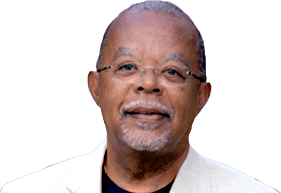William Lurz
March 23 2015
Dear Henry Louis Gates Jr.,
I thought the documentary Many Rivers to Cross was captivating. I thought that you were a very good presenter in that documentary. It really helped me understand how far our country has come in terms of ending slavery and segregation.
I was horrified about slavery. I cannot believe how African Americans were treated. It was terrible. I am glad to live in a country without slavery. I thought that when you showed us how things got better after the Civil War everything was going to be good. I thought the African Americans were going to get their freedom and be true American citizens in the eyes of everybody.
But then segregation happened. I was so upset that the African Americans were being treated unfairly again. I was horrified in the way that they depicted African Americans in the segregated newspapers. It was disgusting and whoever did that must have been crazy. I wish that reconstruction had ended slavery and all of the other horrible things that were happening to African Americans. I think that all the lynching was horrible. Why would you kill somebody just because of their skin color? It is dumb and should not happen.
When I heard about how segregation happened I was infuriated. The American Constitution says that all men are created equal. However, we were acting like all men were created equal except African Americans. I was really upset with the white Americans when they were segregating everything, like restaurants, water fountains, bathrooms and buses. I could not believe schools were segregated as well. I was outraged that African Americans got horrible schools and a bad education. They have a right to the same education as light skinned people. It was completely unfair.
The KKK committed evil acts. They sounded like storm troopers (from Star Wars) except more evil. Once Martin Luther King Jr. (MLK) started preaching and Soul Train and Motown started up, it seemed like everything was going to be okay but then the evil shadow of segregation ruined everything. The white people kept on keeping the white Americans and the black Americans separated. It was terrible.
Your documentary really showed me how bad things were for the African Americans when segregation was happening. Everything was crazy. Bloody Sunday has to have been one of the most horrifying parts of African American history. That and slavery was so scary that it seems like it was out of a horror movie. I was so upset when Martin Luther King Jr. was killed. Why do people always kill amazing people? I believe that his speech “I have a dream” was beautiful. It was really inspiring. I think that MLK was a great man who was aiming for something good. If he had not died, I am sure he would be trying to change the bad stuff that happens today. I started to lose hope when I learned that most of the big leaders in the Civil Rights movement, such as MLK and Malcolm X were dead. I knew that the African Americans were going to win the Civil Rights movement, but I was afraid that it was going to be a longer road without these important leaders, especially MLK.
When Obama got elected I knew that that was going to be a major help in ending segregation and giving African Americans their freedom. And it did work out. Almost all of the segregation stopped. There are still some bad things happening today. Your documentary vividly showed me how bad things were for the African Americans in slavery and in segregation. Obama has helped a lot and things have gotten better. Your documentary also showed me one last thing. We still have work to do.
From,
William Lurz




